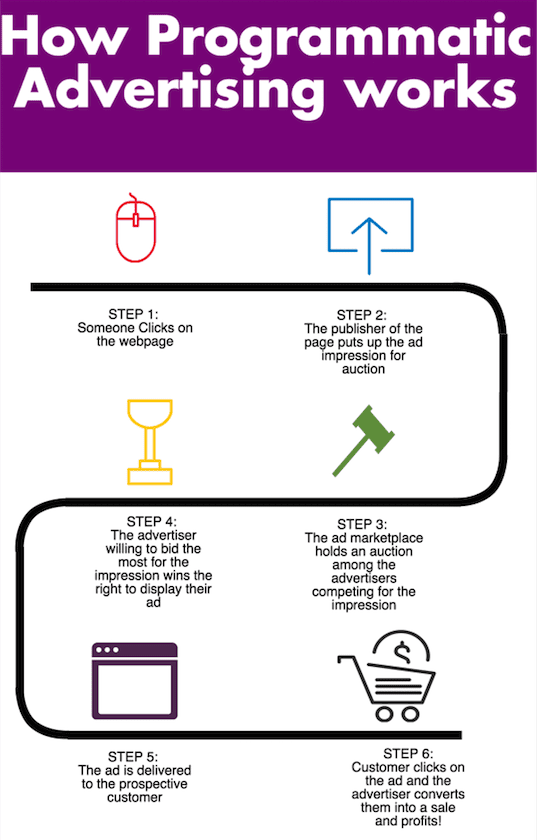Consumers are spending most of their time on mobile, but the majority of ad spend still goes to desktop.
It’s 2017, but most marketers still pour their efforts into desktop campaigns first and mobile second. But with up to 65 percent of time online spent on a mobile device, marketers can no longer afford to treat mobile like an advertising afterthought.
Mobile is driving growth in programmatic advertising — which allows marketers to buy ad space based on demographics and location — but desktop spending will exceed mobile for at least all of this year, and possibly into 2018. So while customers have already made the mobile switch, advertisers have yet to catch up.
Once upon a time, it made sense to prioritize desktop campaigns. Until mid-2015, the majority of us accessed the web primarily through our desktop computers. For marketers, fewer formatting options made mobile campaigns less attractive, and because mobile devices don’t support cookies, analyzing mobile ad effectiveness proved difficult.

Other marketers simply don’t yet see mobile’s potential. Tactics such as SMS, call campaigns, and beacon technology are all executed exclusively on mobile, leading some to mistake them as the only mobile options. But now that mobile has become consumers’ web platform of choice, it’s time for marketers to take the channel more seriously.
Mobile’s Role Is Rising
In many ways, mobile plays a larger role in customers’ journeys than desktop ever did. Today, people walk into stores, pull out their phones, and search for competitors’ products. Desktop simply doesn’t work that way.
On top of that, location often indicates intent. When placing programmatic ads, advertisers can see mobile users’ current and past locations of activity — a visibility that desktop doesn’t allow for. With mobile, brands can better understand where people are and what they’re doing, which enables them to provide consumers with contextually relevant ads.
Mobile ad spending hasn’t kept up with time spent on mobile, but that’s changing. Programmatic advertising is expected to reach $20 billion by 2017, and mobile is an increasingly large slice of that. Marketers who jump in quickly will capitalize on a comparatively large user base with fewer competing ads.
Make Mobile Work for Your Brand
If you’ve been leaning heavily on desktop marketing, learning to drive a mobile campaign can seem tough. Here are a few tips to get you moving when you’re first starting a campaign:
Use cross-device targeting.
Have you ever started browsing products on your phone, and then switched to the computer to actually make the purchase? Your audience has, too. Six out of 10 online conversions start on one device and end on another.If the buyer’s journey is moving across devices, so should your campaign. Turning the switch on cross-device targeting is easy, and any decent programmatic platform will be able to do it.
Try interactive ad formats.
A whopping 60 percent of mobile banner ad clicks are accidents, so try an ad format that encourages purposeful clicks. Think click-to-video play, click-to-map, and social sharing. These features make ads fun and interactive on mobile devices.Let’s face it: People tune out ads if they’re not engaged. Create an interaction to keep their attention and make it easy for them to take action.
Leverage location to serve ads.
Location-based ads serve people right where they are, even when they’re in motion. Mobile ads that combine location with other programmatic profile data see, on average, a 10 percent increase in click-through rates.Most programmatic partners allow location targeting, and location services on consumers’ phones do the heavy lifting for you. Specify locations when buying programmatic ad space to serve ads to the customers who are most likely to take action right away.
Whomever you’re trying to reach, there’s a good chance they have their phones with them 24/7. By matching ads to mobile devices, you reach your audience at the optimal time and place. It’s too good an opportunity to pass up.

Thanks to
Sean Cotton for sharing his advice and opinions in this post. Sean Cotton is president of Coegi, an independent programmatic and social media buying company that provides transparent and collaborative media services to agencies and in-house brand marketing teams. As an expert in digital and programmatic best practices, Sean has been featured as a speaker or a contributor for numerous digital industry associations. Prior to starting Coegi, Sean built and managed a large digital and social staff for one of the fastest-growing media agencies in the U.S.




 Thanks to
Thanks to 


